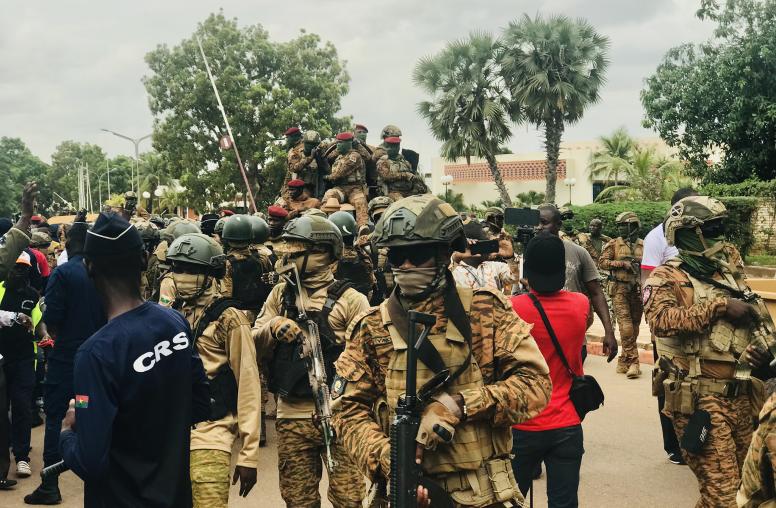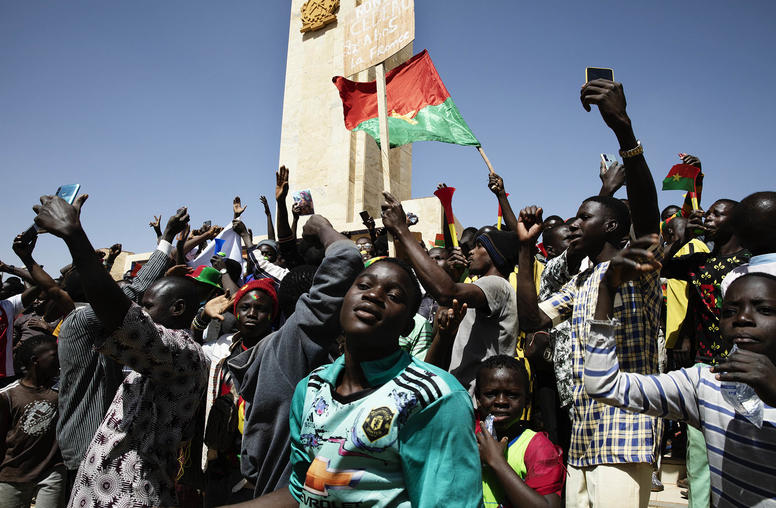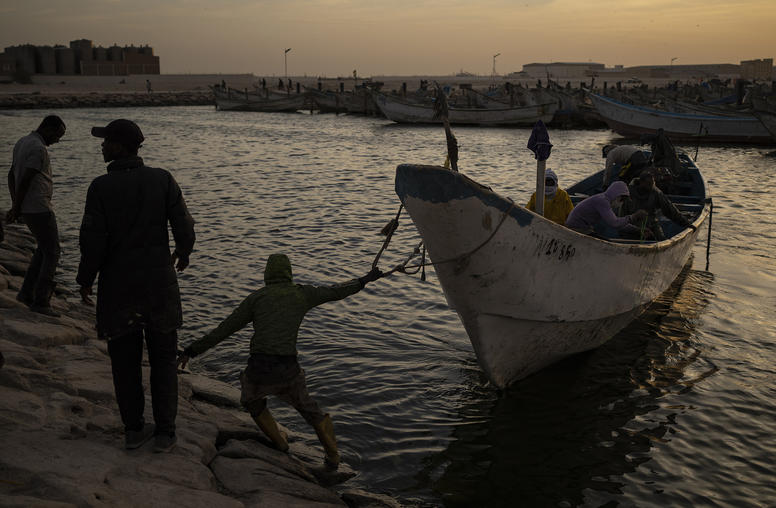Mali’s Coup: Harbinger of Hope or Uncertainty
Security force defections can be key to nonviolent uprisings, but when the military moves to take power the record is much more mixed.
Last year was one of the most dramatic years of nonviolent action in recent memory, with millions taking to the streets to push for greater economic equality, democratic representation, and social justice. Some of the most dramatic uprisings took place in Africa, where longstanding repressive political regimes were forced from power in Sudan and Algeria, and protests over fuel prices in Zimbabwe led to a government crackdown. The recent almost entirely bloodless coup in Mali, in which soldiers abducted President Ibrahim Boubacar Keita and forced him to resign capped a similar uprising, but is complicated by the role of the military in the president’s ouster and the COVID-19 pandemic.

Since June, opposition protesters have been demonstrating to demand Keita’s resignation. When the military became the instrument of satisfying the protesters’ wishes for Keita’s ouster, many celebrated the move. Demonstrators partied in the streets of Bamako, and the M5-RFP opposition coalition, which had organized the protests, cautiously welcomed the coup as the “completion” of its popular struggle.
The coup is not the first change in government brought about through a popular uprising combined with a military coup, nor even the first example of this in Mali. Mali’s transition to democracy in 1991 took place in similar circumstances. And of the more than 80 political transitions brought about in part by mass uprisings since the end of World War II, 11 had their breakthrough moment through a military coup, including the 2011 revolution in Egypt and the 1974 “Carnation Revolution” in Portugal.
What can these historical examples tell us about the coup in Mali? And has COVID-19 affected the typical dynamics of uprising, coups, and political transition? Will things be radically different in a coup taking place under the shadow of a pandemic?
Coups and Nonviolent Action
Military and other security force defections have been an important aspect of many primarily nonviolent uprisings. Nonviolent resistance campaigns are 46 times more likely to succeed when there are widespread security force defections. One of the key advantages of nonviolent action over violent resistance is its ability to motivate such loyalty shifts from a political regime’s pillars of support. Security forces’ refusal to violently crack down on peaceful protesters was key to uprisings that initiated successful democratic transitions in many places, including East Germany, Serbia, and Tunisia.
Yet not all defections are alike. When the military moves beyond avoiding violent repression to directly assume control of the state through a coup, their actions tend to hinder democratic change. Coup plotters frequently claim a popular mandate due to unrest on the streets, as the plotters in Mali have done. Popular discontent and distrust in government, particular when manifested in widespread public dissent, helps coup plotters to coordinate their efforts by providing a common set of grievances that different military factions can all rally around, and can give them greater public legitimacy. This in turn means that coup attempts have a stronger probability of success if the coup takes place during a period of public outrage and distrust toward the government, especially if protests take place.
Yet once in power, a unified military is much more likely to dominate transitional political institutions, protecting its own privileges at the expense of others and undermining democratic progress. For instance, in 2011 the Egyptian military used its privileged position after overthrowing President Hosni Mubarak to eliminate its factional rivals in the regime and consolidate its control over the Egypt’s politics and economy, culminating in a full-fledged return to authoritarianism following a second coup in 2013. Similarly, the 2017 military coup in Zimbabwe that ended the 37-year regime of Robert Mugabe did not lead to significant democratic reforms, as a new military-backed regime consolidated around long-time Mugabe regime insider and former vice president Emmerson Mnangagwa.
Continued civic engagement during political transitions is one key factor in making a peaceful democratic transition more likely. Thus, maintaining domestic mobilization to prevent the military from ensconcing itself in power and ensuring a transition to civilian rule in Mali will be crucial in the coming weeks and months. Nonviolent action has been a powerful tool against military coups, even when coup leaders have ostensibly seized power for civically motivated goals. One recent example of this comes from Sudan last year, where activists continued to demonstrate after the ouster of President Omar al-Bashir by the military until the creation of a joint civilian-military transitional council. In Thailand in 1991, a student-civil society coalition successfully mobilized on the streets to counter attempts by a coup-initiated regime to change the country’s constitution to entrench itself, leading to a negotiated solution and new elections.
Both those inside and outside of Mali are well-aware of the dangers of a coup-initiated transition. The West African regional body ECOWAS immediately imposed sanctions in response to the coup and has only agreed to ease the sanctions as the Malian military complies with its demands for a return to civilian rule. The M5-RFP opposition coalition, the driving force behind the protests, has also moved away from its initial optimism over the coup. The coalition has demanded that the military hand over power to a civilian-led political authority, and organized protests against the military’s handling of recent transitional negotiations. Imam Mahmoud Dicko, an influential figure in Mali’s civil society, is also skeptical about the military’s hold on the nation and urged the junta to expedite the transition to civilian rule.
The COVID Link
One significant difference between the coup in Mali and past coups is the presence of the COVID-19 global health crisis. How has the pandemic affected the political conflict in Mali and what will be its likely impact going forward?
Protesters over the last several months have been motivated by growing dissatisfaction over disputed elections, poverty, corruption, and growing jihadist violence. While these all predate the pandemic, COVID-19 exacerbated many of these challenges. Fears of infection due to inconsistent public safety measures compounded with fears of jihadist violence led to precipitously low turnout in March’s local elections (roughly 7.5%), undermining their legitimacy. The Constitutional Court’s decision to throw out 31 results from parliamentary elections in April to benefit Keita’s party was the final straw in aggravating the public to take their grievances to the streets.
The government’s pandemic response also proved to be a particularly potent illustration of longstanding grievances over corruption and lack of transparency. While the government claimed to have relatively few cases in the early days of the pandemic, there was widespread suspicion that the numbers were being kept artificially low to avoid postponing the elections.
The protests themselves do not appear to have been significantly impacted by the pandemic. The potential risk of infection did not deter tens of thousands of Malians from joining demonstrations in the streets of Bamako. Nor do the demonstrations appear to have led to a spike in COVID-19 cases. The number of confirmed new COVID-19 cases in Mali peaked around the same time as the beginning of the protests in June, and have been steadily declining since then. This fits with early research suggesting that large public demonstrations do not appear, on average, to lead to more COVID-19 infections.
The pandemic’s key impact has been to exacerbate existing frustrations with the government—corruption and failures to deliver services or provide security—rather than transforming forms of political engagement. But these underlying points of fragility will continue to impact governance throughout the transition, reinforcing the crucial importance of developing good governance, security sector reform, and democratic principles.
What Now?
In the days ahead, the transitional authorities, political opposition, and international actors in Mali face a growing set of challenges, from determining transitional governance arrangements to providing security to counter a growing jihadist threat to preventing a resurgence of COVID-19. These challenges have no easy or straightforward solutions, and we know from past cases that a military seizure of power only makes their resolution more challenging. Yet amid this turmoil it is important to remember the sentiments that started this upheaval: public demands to create meaningful and representative democratic change. With strong and creative civilian domestic leadership and international assistance, we can hope that Malians will receive some of that change they have worked so hard to achieve.
Anushka Bose is a visiting research assistant for the program on nonviolent action at the U.S. Institute of Peace.



